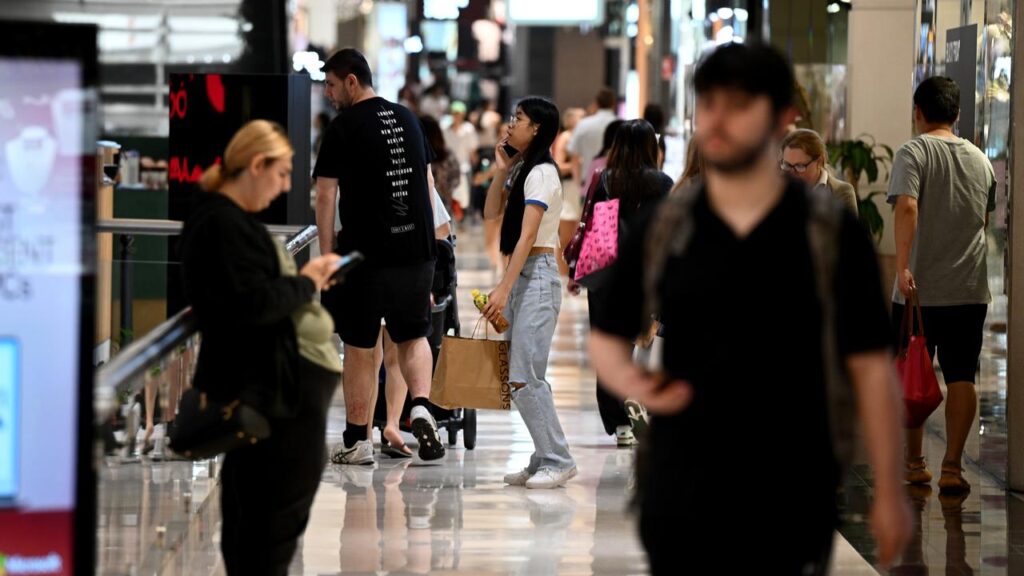Spending rebound staggers as Aussies kick booze, smokes
Jacob Shteyman |

Falling spending on alcohol, tobacco and recreation has slowed Australia’s consumer recovery as the Reserve Bank mulls whether to cut interest rates again.
Household spending grew 0.1 per cent in August, the Australian Bureau of Statistics revealed on Thursday, below consensus estimates of a 0.3 per cent rise.
While consumer spending was still trend up – lifting five per cent in the past year – momentum had slowed after a very strong result in the June quarter, CommSec chief economist Ryan Felsman said.
“Higher inflation in the third quarter and households likely keeping their powder dry for Black Friday sales events in the fourth quarter suggest that household consumption may have decelerated in the September quarter,” he said.
“The Reserve Bank of Australia recently cited a pick-up in consumption as one reason it skipped a rate cut earlier this week and any slowdown in spending would add to the case for further easing.”
Reserve Bank governor Michele Bullock on Tuesday said households could become more comfortable spending rather than saving as disposable incomes recovered, which would benefit businesses but could make inflation more persistent.
But ANZ economist Aaron Luk warned against reading too deeply into one month of economic data, especially as the relatively new household spending indicator was still bumpy.
Underlying factors were still pointing to a further pick-up in spending, he told AAP.
“Today’s data was relatively soft, but you’ve got house prices still recovering, disposable income is picking up as well and we haven’t felt the full impact of the cuts so far,” Mr Luk said.
A rise in airline travel and accommodation was driving growth in spending, ABS head of business statistics Lauren Binns said.
“The small rise in August was the fourth increase in a row, and spending has risen in 10 of the last 12 months,” she said.

Spending on recreation and culture fell 0.9 per cent, while hotels, cafes and restaurant expenditure grew at just 0.3 per cent following a 1.4 per cent jump in July.
Australians’ declining appetite for alcohol and tobacco continued to drag down consumption, with sales down 0.9 per cent for the month and 18.5 per cent for the year.
But it’s unclear how much of this fall is because of cigarette and vape smokers increasingly getting their nicotine fix on the unreported black market instead.
“There’s a general trend where I think the younger population is more aware of the risks around drinking and smoking,” Mr Luk said.
“But at the same time, it is true the black market is growing.”
Despite the ongoing bounce-back in household spending, Australia’s long-awaited economic recovery was at risk of stalling without further reform, Deloitte Access Economics warned in its flagship Business Outlook report.
“Those green shoots point to growth, but it will remain a grinding and gradual recovery,” Deloitte partner and report co-author Cathryn Lee said.

The report forecasts Australia’s economy will grow at an average annual rate of 2.2 per cent during the next decade, down from 3.3 per cent in the three decades before the COVID-19 pandemic.
The government’s economic reform roundtable in August achieved some good outcomes, such as cutting red tape, but waiting until after the next election to implement major tax reform would be too late, she said.
“Future prosperity hinges on encouraging businesses to invest more.”
Deloitte partner Stephen Smith said economists underestimated the “guile” of Treasurer Jim Chalmers, who arguably had a broad mandate to implement changes after using the roundtable to build consensus around the need to tackle intergenerational inequality.
“In that context, a regularly convened roundtable which hashes out policy concerns, reform options and the best response to Australia’s economic and social issues would be valuable,” Mr Smith said.
Dr Chalmers said while the report made clear the extent of the coming economic challenges, it also showed Australia had a lot going for it
AAP